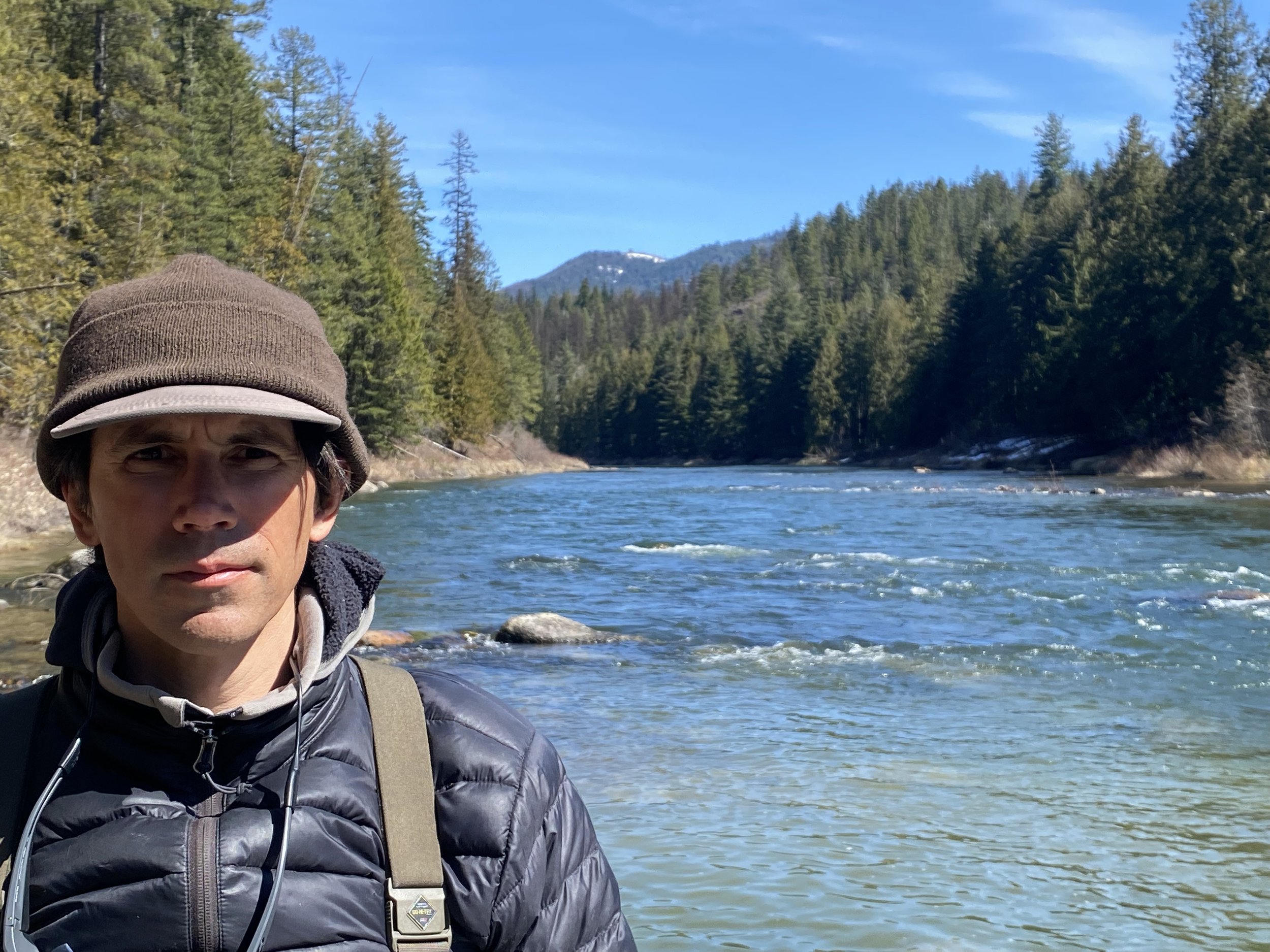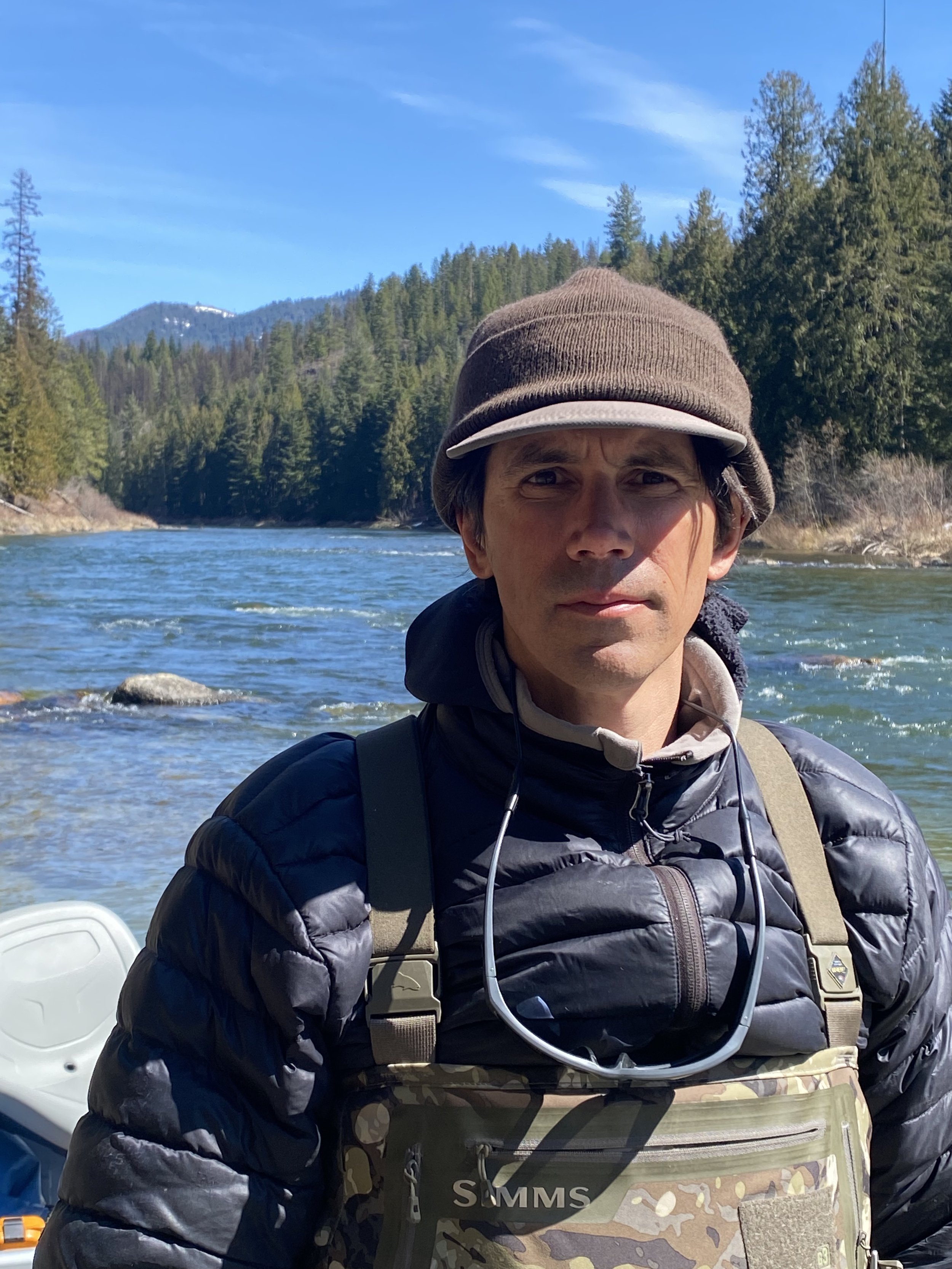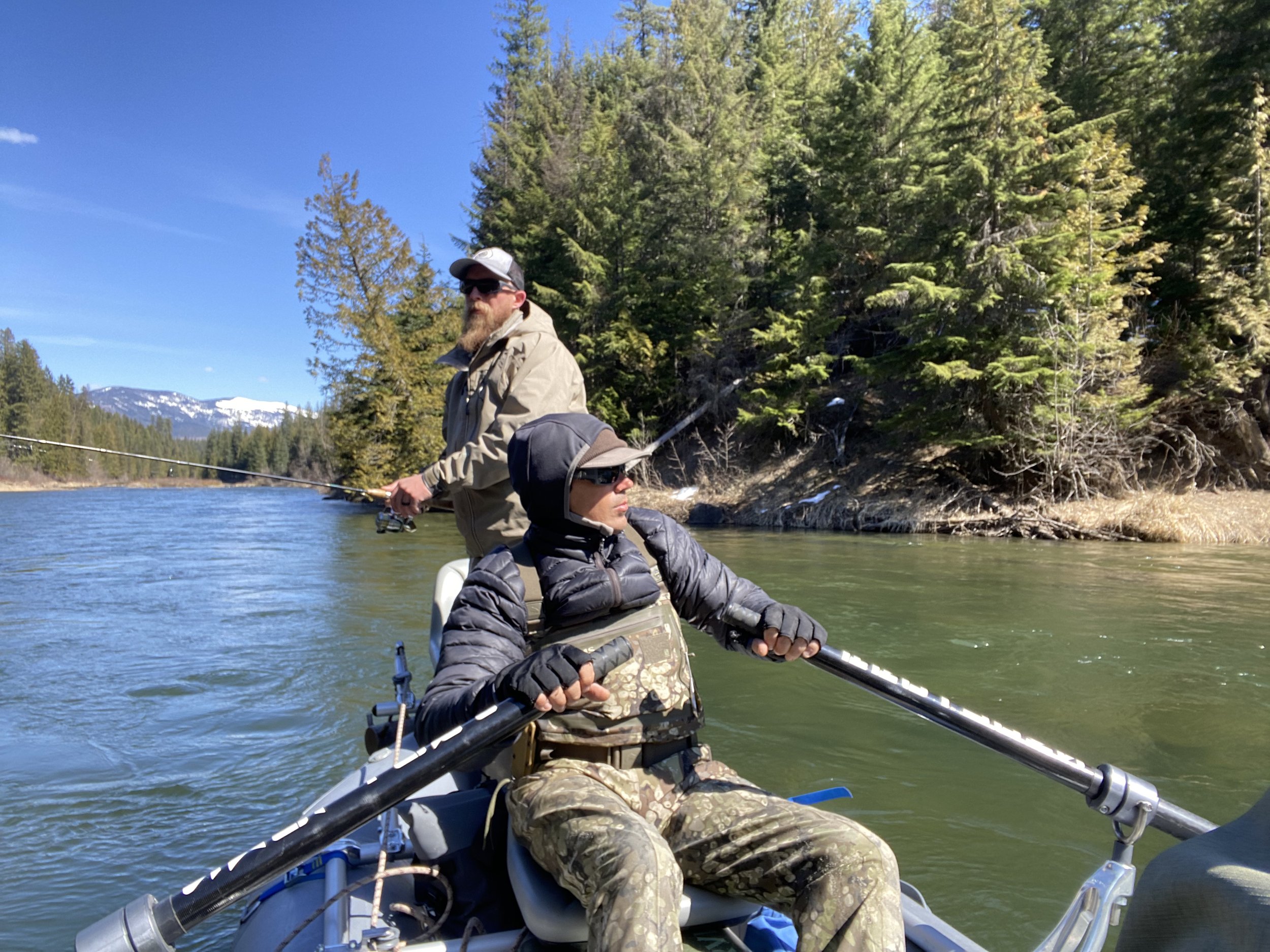Conservation Commons: Hank Jones
Hank Jones. Photo: Daniel RItz/IWF
Recently, members of the IWF staff drove north and joined Hank Jones of Inland Northwest Fishing Guides for a day of fishing on northern Idaho’s Priest River.
Jones has become one of the key figures of a decades-long battle to restore and enhance the Priest River to its true potential as one of north Idaho’s premier trout streams.
In the long lulls between bites we chatted with Jones about his hook and bullet origin story, the Priest River -how he became involved and where we are now - and more.
Introducing Idaho WIldlife Federation’s latest Conservation Commons highlight, Hank Jones.
UPDATE: This Saturday, June 18th, there will be a town hall meeting at PRIEST LAKE ELEMENTARY at 2 P.M. Pacific to discuss the future of Priest River/Lake and the potential coldwater bypass program. All are welcomed and encouraged to attend and to respectfully engage in public discussion. For more information, visit PriestRiverProject.Org.
IWF: Tell us a little bit about your origins in hunting and angling
Hank Jones (J): My family had a strong hunting tradition which I was introduced to at a young age - tagging along on deer and turkey hunting trips to my grandfather's cabin in Tioga county Pennsylvania. These trips fostered a strong connection with wildlife and the land. Growing up in the Deleware Valley, I had ample sporting opportunities, whether it be bowhunting for whitetails, fishing for trout in the local streams or for bass in farm ponds and these quickly became a staple in my teenage years. It's still the same today.
IWF: Describe your current personal hunting and fishing passions
J: I enjoy discovering new areas that are off the beaten path that aren't being paid much attention to. This allows me to get away from people and focus on developing a relationship with a particular piece of land or waterway. Figuring out not just where the deer or elk are bedding or why the trout are feeding at a particular time in the riffle as opposed to the soft water, but why they are, helps me feel connected to these places and is a vital part of the experience for me.
I also enjoy managing properties for wildlife. Currently, I manage an 1800 acre private waterfowl property in the Inland Northwest and my wife and I own 80 acres. Finding ways to create a symbiosis between human use and enhancing wildlife habitat can be incredibly gratifying.
IWF North Idaho Field Coordinator Kyle Maki fishes while Hank Jones rows on northern Idaho’s Priest River. Photo: Daniel RItz/IWF
IWF: Tell us about your professional guiding and what makes it unique?
J: As a guide, I wouldn't say that I'm particularly unique but I would say that I'm deeply invested on a personal level in the success of the anglers fishing on my boat. At this point in my life, I guide much more than I fish and I truly live vicariously through the people I'm fishing with. Often I feel their successes and failures much more than they do. I can't tell you how many times I watch a fish pop off mid fight and while the angler is nearly unaffected, I'm completely devastated. Because of this, I work exceptionally hard trying to get folks into fish.
IWF: How did you become aware of, and involved in the Priest River project?
J: I had heard about the potential of cold-water restoration of Priest River about 5 or 6 years ago. A similar project had just been completed on Sullivan Lake and was showing signs of success. The Sullivan Lake project inspired talk about researching the potential of doing the same on the Priest. I inquired with the Idaho Fish and Game dept. wondering how likely/serious they were about this project and was told that it would be quite some time before it might happen. However they began doing research into the feasibility of performing such a project and were met with quite a bit of opposition for even looking into the concept. It was apparent that a public voice was needed in support of the Priest River cold water restoration. I didn't see anyone else stepping up to the plate so I felt like it was my responsibility to step up.
IWF: Why do you think the restoration of the Priest River is such an important piece of angling opportunity in northern Idaho?
J: The Priest River and its tributaries provide incredibly important spawning habitat for the Pend Oreille system. Bull Trout and Westslope Cutthroat trout migrate out of Lake Pend Oreille, down the Pend Oreille River and up the Priest and its tributaries to spawn. These fish then return to the lake and as far up as the Lower Clark Fork River. Since the construction of the dam at Outlet Bay in 1950, Priest River habitat has been negatively impacted, removing the opportunity for these cold water native salmonids to migrate into Priest Lake and hence negatively impacts fishing opportunities throughout the entire Pend Oreille system.
IWF: Describe where we are right now with the Priest River restoration project?
J: Over the past several years IDFG has invested much effort into feasibility research to ensure this project will meet its expected objectives. They've also conducted research to ensure that this project won't negatively impact other areas of the Priest River Subbasin. However there is abundant misinformation being circulated currently regarding the project. Because of this IDFG has suspended their research and is currently focusing their efforts on outreach and education. It's important that the information that IDFG is collecting is finding its way to the public.
IWF: What can people do to support the restoration of the Priest River project
J: There is a petition being circulated in support of the research being conducted by the Idaho Fish and Game Dept. and the Kalispel Tribe of Indians regarding the cold water restoration of the Priest River. https://www.change.org/p/support-the-restoration-of-priest-river. There is also a website www.priestriverproject.org that has information and links to articles and research supporting the cold water restoration efforts. There's a list of politicians/decision makers on the website and I would urge people to contact these folks and voice their support of the efforts being made on the Priest River.
IWF: Ok. Bonus question. We had a discussion on the boat with the priest I’d love to share. Do you consider yourself a specialist, a generalist, and why? :)
J: I see the merit in both approaches. While the generalist may be considered a jack of all trades, understanding a broad range of skills can provide them with a very complete overall picture of what is necessary to succeed. The tools learned in one skill can often help one advance quickly in another skill. The specialist may be considered an elitist, but often complete concentration and focus on one skill can help them advance quickly to mastery of that skill.
When applied to fishing, I guess I'd be considered a specialist, considering that the majority of my time is focused on fly fishing for trout. When applied to fly fishing for trout, I guess I'd be considered a generalist, being that there is no particular method of catching trout with which I focus. In general, I'm a specialist, but in special situations, I could be considered a generalist;-)
REMINDER: This Saturday, June 18th, there will be a town hall meeting at PRIEST LAKE ELEMENTARY at 2 P.M. Pacific to discuss the future of Priest River/Lake and the potential coldwater bypass program. All are welcomed and encouraged to attend and to respectfully engage in public discussion.



